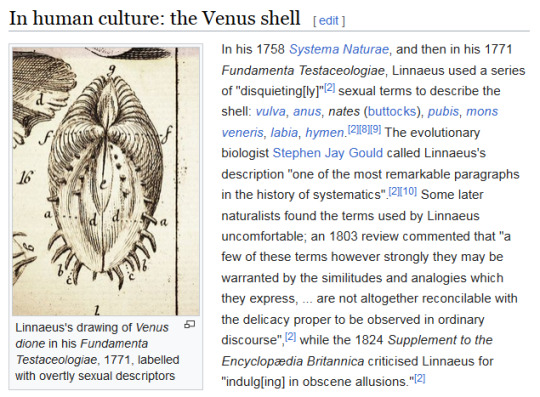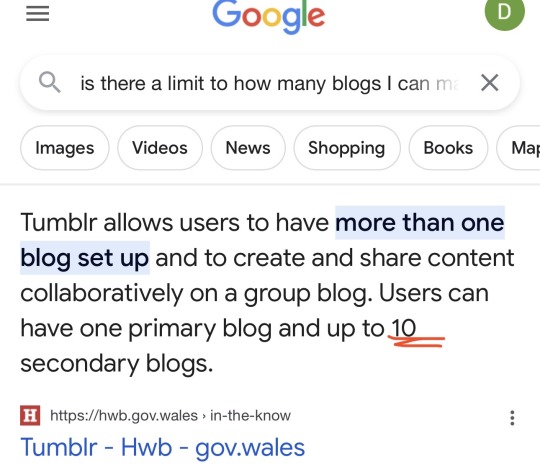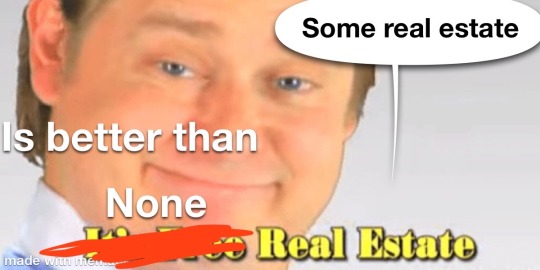#human taxonomy
Note
idk how much you know about bio anthropology so pardon me, but afaik neanderthals are more commonly accepted by the anthropology community as being a subspecies of homo sapiens! we're all the same guys!!! :-D
[fwiw there are also at least a handful of other extinct human subspecies that we know only a little about due to having minimal remains of them]


I mean, if Svante Paabo, THE foremost human genetics anthropologist, says "this is stupid to argue about", I doubt it's that common a belief among anthropologists? Maybe I'm appealing to authority too much though
#taxonomies are useful categories for humans to grasp similarities#this means they are subject to the inconsistencies of the real world
78 notes
·
View notes
Text
animals all have human level intelligence in my world, so it wouldn't make sense for them to herd sheep and cows or have dogs and cats for pets. so what if insects filled those roles? that opens the door to so many cool concepts. huge fluffy moths kept for their silk, mantises as livestock guardians, cricket coops instead of chicken coops, beetle species being bred for the brightest colors and shiniest shells to compete in beetle shows, tarantulas as beasts of burden, dragonflies as aerial mounts. honestly just scale them up and bugs can do anything
#ghost post#worldbuilding#tw bugs#bugs tw#also swarms of feral insects?? how much cooler can this get#so much room for creativity with this#this also solves logistic issues for my worldbuilding like 'if all the animals have a peaceful* society what do the predators eat?'#*peaceful the way human society is peaceful. theres greed and crime and all that but theyre not ripping each other to shreds on the streets#(for the most part)#this midnight ramble is brought to you by the wiki pages for insect taxonomy and list of domesticated animals
32 notes
·
View notes
Text


Linnaeus having a normal time with seashells
45 notes
·
View notes
Note
So what do you think about Land_Locked_Martian's latest fic? It's isn't completed yet, but I'm loving it.
I think it's funny as hell, poor Megatron he's gonna have to deal with Optimus being so damn hyped up and everyone wanting to know about everything to do with their relationship and the carrying cycle and just. everything.
#maccadam#transformers#oh Optimus#he's so excited for this#the next 83 years are gonna be filled with so much preparation and tlc and snooping#but also can you imagine being pregnant for 83 years#like by cybertronian standards that's not that long#but for us humans it's truly hard to wrap our heads around how long these guys live#the war is older than our entire genus#when the war started lions and tigers were the same animal#i don't think i can accurately describe just how properly OLD these guys are and i keep trying to use paleontology and taxonomy#which isn't enough#Optimus prime#Megatron#megop
20 notes
·
View notes
Text
I dont know why its so hard to understand that to speak of 'western civilization' doesnt imply every European(or European derived) culture is the same any more than to speak of 'mammals' implies dolphins and cheetahs are the same.
#I was gonna use a linguistics example#but language roots and cultural commonalities have a lot of overlap#No surprise since language is a part of culture#But yea nested taxonomies arent a complicated concept#Granted its a bit messier and complex when dealing with something like human cultures#But to say that there arent commonalities between European cultures that arent shared with cultures from other parts of the globe#is just a straight up denial of reality
4 notes
·
View notes
Text
I like Tumblr, I do
But I REAAAAALLLLY like Pinterest and the way you can sort your posts based on categories and interests etc.
I wonder if I can sort my posts on tumblr the same way I do on Pinterest….

Well then…..

Wooooooo
#pinterest#tumblr#taxonomy#but it’s just memes#and other important-non verified factoids#free real estate#niche blog#x 9 here I come!#let’s see if I can break down my taste in internet interaction into 9 categories#doubt it#it takes 46 chromosomes to define a human#biologically anyhow#hidden tags#unhinged
3 notes
·
View notes
Text
Linneus invented the binomial nomenclature of biological species which started the science of taxonomy. Since taxonomy has only brought headaches to every biologist ever since, we conmemorate Linneus by puting a big fat L. in front of every plant he discovered.
#this is entirely inaccurate it's just a shitpost#for starters humans have been praticing taxonomy since they evolved#it's quite literally the most ancient profession#we do give Linneus L. though that part is 100% true#cosas mias
20 notes
·
View notes
Text
Science hot take: Dogs are not a single species and the concept of species shouldn’t even apply to them. The definition of a species is a group of organisms that can all reproduce with each other across multiple generations. Therefore, it is a basic law of nature that individuals of a species of sexually reproductive animals cannot vary so greatly in size that the largest males cannot safely breed with the smallest females. My dad is close to the upper bound for how tall humans can be, barring genetic disorders, and my mom is close to the lower bound, and I’m alive right now and didn’t kill my mom in the womb due to being too big of a fetus for her to support. The same would be true if I were any species of wild animal on earth. However, we have selectively bred dogs so hard over the course of thousands of years that we’ve bypassed this limit completely. If you try to breed a female Chihuahua and a male English Mastiff, it will be at best impossible and at worst lethal. Therefore, dogs are not one species. HOWEVER, they also cannot be categorized as a discrete number of different species, because different dog breeds fall onto a complete spectrum of sizes, and can all crossbreed with breeds that are a certain degree smaller or larger than them. This creates a situation where dog A and dog B can have a litter of healthy puppies together, and so can dog B and dog C, and dog C and dog D, but it’s completely impossible for dog A and dog D, similar to a dialect continuum in linguistics. This breaks the entire classification system of species, and means that dogs are neither one species, nor a discrete number of multiple species, but a new thing I am provisionally calling a species spectrum.
#biology#taxonomy#dogs#i've heard before that biologists have known for a while that there are situations where the concept of species doesn't fully apply#but the examples people give are always exotic wild animals that most people have never seen#and not the domestic one that's been ubiquitous across human cultures worldwide since the neolithic
3 notes
·
View notes
Text
Are you in camp 'fish aren't real' or 'fish are real, and humans are fish'
2 notes
·
View notes
Text
addicted to kokobot
#i really like the gender questions so i can rattle people who are clearly poisoned by#ultra online Identity Taxonomy spaces#and just tell them hey. you can do whatever you want forever#there's no such thing as a Real Trans. we're all one gender the human gender
2 notes
·
View notes
Text
something i always found interesting about the NHS and other autism diagnosis questionnaires was the juxtaposition of (paraphrasing) “I tend to notice patterns a lot” where yes = autism points, and “I can’t predict what will happen next when watching a movie/reading a book” where yes = autism points.
bit of a conundrum given how formulaic and reliably patterned 90% of media/narratives are.
i know there can be important nuances which are glossed over in these generic statements but if anything that speaks to the inadequacy of how we conceptualize and measure psychological states and relationships as a whole in a society that uses not just medical frameworks but generally taxonomy applied to humans.
#i mean taxonomy applied to everything else is also considerably inadequate but i guess the stakes are higher when applied to humans because#..we’re humans#and also we have enough awareness to know and do better
1 note
·
View note
Text
The sangheili (Macto cognatus in latin taxonomy, meaning "I glorify my kin") are a real nuisance
#i glorify my kin#TEXT#DAY 7#I hope this time it sprouted! they are quite similar to Humans as elites for their former role in the Covenant's two Founding species#the sangheili (Macto cognatus in latin taxonomy#meaning ) ARE a saurian sapient species known for their warrior culture and customs
0 notes
Text
Dethroned
My destruction; your opportunity
My empire in rubble,
The crown knocked off my head,
Sitting atop yours
I’ve changed,
So have you,
The power I once held has transformed,
I ponder, am I still me?
No… afterall,
I hold a new name
You stand up straight now– don’t cower or hide like before, scurrying at the sight of me—
Tell me, does it feel good?
Does it feel good?
I’m sure it does,
Taking the place of a disgraced emperor and ruling anew, watched as our offspring barely survived, cowered and hid to survive— scurried at the sight of you— all while you transformed
I’m sure it does
I will live in this position,
And you yours,
That is simply our lot in life,
But I will not mourn when you bring about our final— complete — destruction.
You, mighty new king,
will also be dethroned,
But at your own hands.
.
#dinosaur#mammals#can you believe this is about dinosaurs ^^#angst#mass extinction#amateur writer#original story#original writing#original poetry#poetry#royalty#empire#humanity#human nature#i love dinosaurs im still salty about them dying out#sorry birds but it don't hit the same way#biology#science#taxonomy#life on our planet#that netflix show
1 note
·
View note
Text
On the one hand, it's true that the way Dungeons & Dragons defines terms like "sorcerer" and "warlock" and "wizard" is really only relevant to Dungeons & Dragons and its associated media – indeed, how these terms are used isn't even consistent between editions of D&D! – and trying to apply them in other contexts is rarely productive.
On the other hand, it's not true that these sorts of fine-grained taxonomies of types of magic are strictly a D&D-ism and never occur elsewhere. That folks make this argument is typically a symptom of being unfamiliar with Dungeons & Dragons' source material. D&D's main inspirations are American literary sword and sorcery fantasy spanning roughly the 1930s through the early 1980s, and fine-grained taxonomies of magic users absolutely do appear in these sources; they just aren't anything like as consistent as the folks who try to cram everything into the sorcerer/warlock/wizard model would prefer.
For example, in Lyndon Hardy's "Five Magics" series, the five types of magical practitioners are:
Alchemists: Drawing forth the hidden virtues of common materials to craft magic potions; limited by the fact that the outcomes of their formulas are partially random.
Magicians: Crafting enchanted items through complex manufacturing procedures; limited by the fact that each step in the procedure must be performed perfectly with no margin for error.
Sorcerers: Speaking verbal formulas to basically hack other people's minds, permitting illusion-craft and mind control; limited by the fact that the exercise of their art eventually kills them.
Thaumaturges: Shaping matter by manipulating miniature models; limited by the need to draw on outside sources like fires or flywheels to make up the resulting kinetic energy deficit.
Wizards: Summoning and binding demons from other dimensions; limited by the fact that the binding ritual exposes them to mental domination by the summoned demon if their will is weak.
"Warlock", meanwhile, isn't a type of practitioner, but does appear as pejorative term for a wizard who's lost a contest of wills with one of their own summoned demons.
Conversely, Lawrence Watt-Evans' "Legends of Ethshar" series includes such types of magic-users as:
Sorcerers: Channelling power through metal talismans to produce fixed effects; in the time of the novels, talisman-craft is largely a lost art, and most sorcerers use found or inherited talismans.
Theurges: Summoning gods; the setting's gods have no interest in human worship, but are bound not to interfere in the mortal world unless summoned, and are thus amenable to cutting deals.
Warlocks: Wielding X-Men style psychokinesis by virtue of their attunement to the telepathic whispers emanating from the wreckage of a crashed alien starship. (They're the edgy ones!)
Witches: Producing improvisational effects mostly related to healing, telepathy, precognition, and minor telekinesis by drawing on their own internal energy.
Wizards: Drawing down the infinite power of Chaos and shaping it with complex rituals. Basically D&D wizards, albeit with a much greater propensity for exploding.
You'll note that both taxonomies include something called a "sorcerer", something called a "warlock", and something called a "wizard", but what those terms mean in their respective contexts agrees neither with the Dungeons & Dragons definitions, nor with each other.
(Admittedly, these examples are from the 1980s, and are thus not free of D&D's influence; I picked them because they both happened to use all three of the terms in question in ways that are at odds with how D&D uses them. You can find similar taxonomies of magic use in earlier works, but I would have had to use many more examples to offer multiple competing definitions of each of "sorcerer", "warlock" and "wizard", and this post is already long enough!)
So basically what I'm saying is giving people a hard time about using these terms "wrong" – particularly if your objection is that they're not using them in a way that's congruent with however D&D's flavour of the week uses them – makes you a dick, but simply having this sort of taxonomy has a rich history within the genre. Wizard phylogeny is a time-honoured tradition!
#gaming#tabletop roleplaying#tabletop rpgs#dungeons & dragons#d&d#worldbuilding#taxonomy#phylogeny#media#literature#history#literary history#death mention
2K notes
·
View notes
Text
I wish Carl Linnaeus hadn't chosen the word sapiens for our specific name. Because it ends in S, everyone thinks it's plural, which is why we have the nonsensical backformation "Homo sapien."
"Homo sapiens" is singular. It's not English. It's Latin.
0 notes